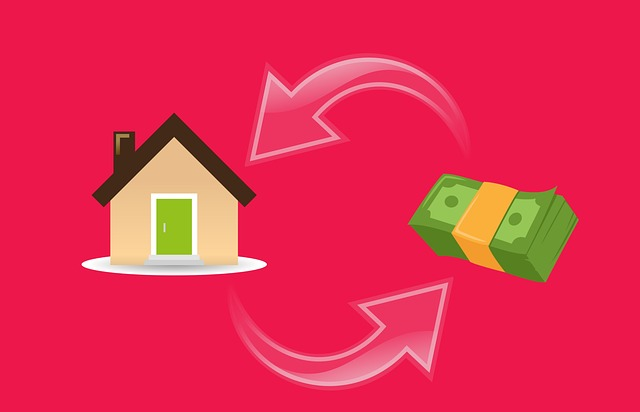Welcome To Our Mortgage Educational Blog About:
Can You Postpone Monthly Mortgage Payments or Change Their Schedule?

Managing a mortgage payment can be a complex and daunting task for some homeowners. When unexpected financial hardships arise, homeowners may find themselves unable to make the required monthly payment. In these cases, the homeowner may be able to postpone or change the mortgage payment schedule.
This article will provide an overview of mortgage payment postponement and options for changing the mortgage payment schedule. It will also discuss the eligibility requirements, the risks and benefits of postponing/changing payments, and alternatives to the postponement.
Finally, it will provide resources for assistance and tips for preventing the need for postponement.
Definition of Mortgage Payment Postponement
Mortgage payment postponement refers to the process of delaying a monthly mortgage payment for a specified amount of time. In some cases, the lender may allow a homeowner to change the mortgage payment schedule, such as changing the payment date or the amount of the payment.
Generally, these changes are made with the agreement of both the lender and the borrower. The specifics of the postponement or change will vary depending on the lender and the borrower’s financial situation.
Overview of Mortgage Payment Options
Mortgage payment options generally include making the full payment on time, paying a partial payment, or deferring the payment. When making a partial payment, the lender usually applies the payment to the due interest.
The borrower can then work with the lender to set up a payment plan to make up the difference in the future. When deferring the payment, the lender may agree to add the payment to the end of the loan, extending the loan and increasing the total amount to be paid.
Some shorter-term mortgages can be extended to a longer term with the help of a convertible term mortgage. When the mortgage is converted or extended, the interest rate changes. The lender will usually offer a longer term interest rate. In addition, the lender may agree to another option such as a second mortgage.
What is Mortgage Deferral?
Mortgage payment deferral is a type of postponement of a mortgage payment. This is generally done when the homeowner is unable to make the full payment due to financial hardship.
During the deferral period, the lender will typically apply the payment to the interest due, and the borrower will work out a payment plan with the lender to make up the difference in the future.
The specifics of the deferral will vary depending on the lender and the financial situation of the borrower. Generally, the lender will require the borrower to provide documentation such as proof of income and proof of financial hardship.
What Are Monthly Payments?

Monthly payments refer to the regular payments made by a homeowner to their lender in order to repay their mortgage. Generally, these payments consist of both principal payments and interest payments. Additionally, they may include payments for property taxes, insurance, and other fees.
Principal Payments: Principal payments are the portion of the monthly payment that goes towards paying down the principal balance of the loan. This amount will vary depending on the loan amount and the length of the loan.
Interest: Interest payments are the portion of the monthly payment that goes towards paying for the interest accrued on loan. This amount will vary depending on the interest rate and the length of the loan.
Property Taxes: Property taxes are the taxes due on the property each year. They are usually included in the monthly payment, and the amount due will vary depending on the value of the property and the local tax rate. Keep in mind that this amount may change each year.
Reasons for Postponing or Changing Mortgage Payments
There are a variety of reasons why a homeowner may need to postpone or change their mortgage payments. These may include unexpected financial hardships, such as job loss, medical bills, or other unexpected expenses. In some cases, the homeowner may be unable to make the full payment on time due to a lack of sufficient funds.
In other cases, the homeowner may be looking to take advantage of lower interest rates or other benefits available through a loan modification or refinancing. Regardless of the reason, it is important to speak with the lender prior to making any changes.
How to Postpone or Change Mortgage Payments
In order to postpone or change their mortgage payment schedule, the homeowner must first contact the lender. The lender will then assess the borrower’s financial situation and determine the best course of action.
If the lender agrees to the postponement or change, they will provide the borrower with a written agreement outlining the terms.
The homeowner will then be expected to make the payments as agreed. In some cases, the homeowner may be asked to provide additional documentation, such as proof of income or proof of financial hardship.
Eligibility Requirements for Mortgage Payment Postponement
The eligibility requirements for mortgage payment postponement will vary depending on the lender. Generally, the lender will take into account the borrower’s credit score, income, and financial hardship.
The lender will also consider the type of loan, the loan-to-value ratio, and the borrower’s payment history. Additionally, the lender will usually require the borrower to provide proof of income and proof of financial hardship.
Mortgage Deferral Eligibility:
-
Credit score: Lenders will typically review the borrower’s credit score in order to assess their ability to make payments.
-
Income: The lender will typically require proof of income to verify that the borrower can make their payments.
-
Financial Hardship: The lender will typically require proof of financial hardship in order to qualify for a deferral.
-
Loan-to-value ratio: The lender may require the borrower to have a certain loan-to-value ratio in order to qualify for a deferral.
-
Payment history: The lender may review the borrower’s payment history in order to assess their ability to make payments.
-
Type of loan: The type of loan may affect the eligibility for a deferral.
-
Additional documentation: The lender may require additional documents such as proof of income or proof of financial hardship.
Is Mortgage Deferral Worth It?
Mortgage deferral can be a viable option for some borrowers who are experiencing financial hardship. Ultimately, whether or not mortgage deferral is worth it will depend on the individual’s financial situation.
While some institutions allow you to defer your credit insurance payments, others may continue to pay you them. However, it is important to consider all of the risks and benefits before deciding if it is the right option for you.
The Benefits of Postponing or Changing Mortgage Payments
Postponing or changing mortgage payments can provide a variety of benefits to the borrower. In some cases, it can provide temporary relief from the burden of making a full monthly payment.
Additionally, it can provide the borrower with additional time to save money or improve their financial situation. Finally, it can help the borrower avoid foreclosure and maintain ownership of their home.
The Risks of Postponing or Changing Mortgage Payments
Postponing or changing mortgage payments can also present some risks to the borrower. Generally, the borrower will be required to pay the additional interest due to the extended loan term. This can lead to the borrower paying more in the long run.
Additionally, the borrower’s credit score may be affected, as late or missed payments can have a negative impact. Finally, the lender may charge fees for the postponement or change in the payment schedule.
How to Defer Your Mortgage

Deferring your mortgage can provide temporary relief from the burden of making a full monthly payment. There are several ways that a homeowner can defer their mortgage, including term adjustment, forbearance, and loan insurance.
Term Adjustment:
Term adjustment is a process in which the lender agrees to extend the loan term in order to reduce the monthly payment. Generally, the lender will apply the deferred payments to the end of the loan, increasing the total amount to be paid. In some cases, the lender may also reduce the interest costs or other fees associated with the loan.
Forbearance:
Forbearance is a process in which the lender agrees to reduce or suspend the borrower’s payments for a specified amount of time. During this time, the borrower is not required to make any payments and will not be charged additional interest. However, at the end of the forbearance period, the borrower will be required to make up any missed payments.
Loan Insurance:
Loan insurance is a type of insurance policy that can provide a homeowner with relief in the event of financial hardship. Loan insurance is available in Canada for borrowers who are unable to make their mortgage payments due to an illness or job loss.
This type of insurance will cover a portion of the borrower’s mortgage payments for a specified period of time. The lender will typically pay the premiums for this insurance, however, the borrower is responsible for any additional costs associated with the policy.
Alternatives to Postponing or Changing Mortgage Payments
If the borrower is unable to postpone or change their mortgage payment schedule, there are a variety of alternatives available. The borrower may be able to refinance the loan in order to reduce the monthly payments.
Additionally, the borrower may be able to negotiate a loan modification with the lender, which could include reducing the interest rate or extending the loan term.
If they are a student, the borrower may be eligible for government assistance programs such as the Canada Student Financial Assistance Program (CSFA).
Resources for Assistance in Postponing or Changing Mortgage Payments
There are a variety of resources available to assist borrowers in postponing or changing their mortgage payment schedule in canada. The borrower can contact their lender to discuss their options.
They may be able to seek assistance from a government agency such as the Canadian Mortgage and Housing Corporation (CMHC).
1. Canada Mortgage and Housing Corporation (CMHC): The CMHC offers a Mortgage Loan Insurance program that helps Canadians purchase homes with as little as 5% down payment (For new MLI). They also provide mortgage assistance programs, including programs to help those facing financial hardship, such as the Financial Hardship Assistance program.
2. Financial Consumer Agency of Canada (FCAC): The FCAC provides advice, tools, and resources to help Canadians manage their money and make informed financial decisions. They have a section of their website dedicated to helping Canadians who are facing financial difficulties and are struggling to make their mortgage payments.
3. Mortgage Brokers and Financial Institutions: Most mortgage brokers, banks and other financial institutions in Canada offer mortgage assistance programs to those facing financial hardship. Speak to your lender to find out what options are available.
4. Government Assistance Programs: The Government of Canada offers a variety of programs to help homeowners who are facing financial difficulty. These programs include the Home Buyer’s Plan, the Homeowner’s Assistance Program, and the Homeowner’s Property Tax Rebate.
How to Prevent Needing to Postpone or Change Mortgage Payments
There are a variety of steps that a homeowner can take to prevent the need for postponing or changing their mortgage payment schedule. The homeowner should ensure that they have an emergency fund to cover unexpected expenses.
They should budget for additional expenses such as home repairs or vehicle repairs. Finally, the homeowner should review their bank statements regularly to ensure that they are not over spending and are saving some money.
What Happens When You Defer Your Mortgage?
When a homeowner decides to defer their mortgage payment, they are essentially postponing the payment for a period of time. The lender may agree to add the payment to the end of the loan, extending the loan and increasing the total amount to be paid. Alternatively, the lender may allow the borrower to make smaller payments over an extended amortization period.
The lender will generally assess the borrower’s financial situation and determine the best course of action. If the lender agrees to the deferment, they will provide the borrower with a written agreement outlining the terms. The borrower will then be expected to make the payments as agreed.
The borrower should be aware that while deferring a mortgage payment can provide temporary relief, there can be some potential risks. Generally, the borrower will be required to pay the additional interest due to the extended loan term.
Additionally, the borrower’s credit score may be affected, as late or missed payments can have a negative impact. Finally, the lender may charge fees for the deferment.
The Bottom Line
This article provided an overview of mortgage payment postponement and options for changing the mortgage payment schedule. It discussed the eligibility requirements, the risks and benefits of postponing/changing payments, and alternatives to Mortgage postponement. It also provided resources for assistance and tips for preventing the need for postponement.
In summary, postponing mortgage payments or changing the payment schedule can be a useful option for homeowners facing financial hardship. However, it is important to understand the eligibility requirements, the risks, and the benefits of postponing or changing payments.
Additionally, there are a variety of alternatives to postponement, such as refinancing or loan modification, and resources available for assistance. Finally, it is important to take steps to prevent the need for postponement, such as budgeting for unexpected expenses and reviewing the mortgage statement regularly.
Do you have any questions? If so, call me to book your free consultation, 780-905-6359. Alternativley, you can email me by clicking right here! Metro Mortgage Group is here to help!
Are you ready to purchase your first home? Reach out to me directly or start your application here: www.sandraforscutt.ca/mortgage-application/
Don’t hesitate to contact us with any questions you may have.
Recent Educational Blogs
Preparing for Renewal Season
Oct 2025 | Preparing for Renewal Season: What 2026 Borrowers Should Do NowWith nearly 60% of Canadian homeowners set to renew their mortgages by the end of 2026, preparation has never been more important. After years of ultra-low rates during the pandemic, many...
Navigating Mortgage Renewals
Sept 2025 | Navigating Mortgage RenewalsFrom Rock-Bottom Rates to Today’s RealityIf you were lucky enough to secure a mortgage in the early days of 2020, chances are your rate was impressively low, often near 1% to 2%. At the time, the Bank of Canada’s overnight rate...
How Your Credit Score Impacts Mortgage Approval
Aug 2025 | How Your Credit Score Impacts Mortgage Approval If you’re thinking about buying a home, you might be wondering how your credit score influences the process. The short answer: your credit score is one of the most important factors lenders consider when...




